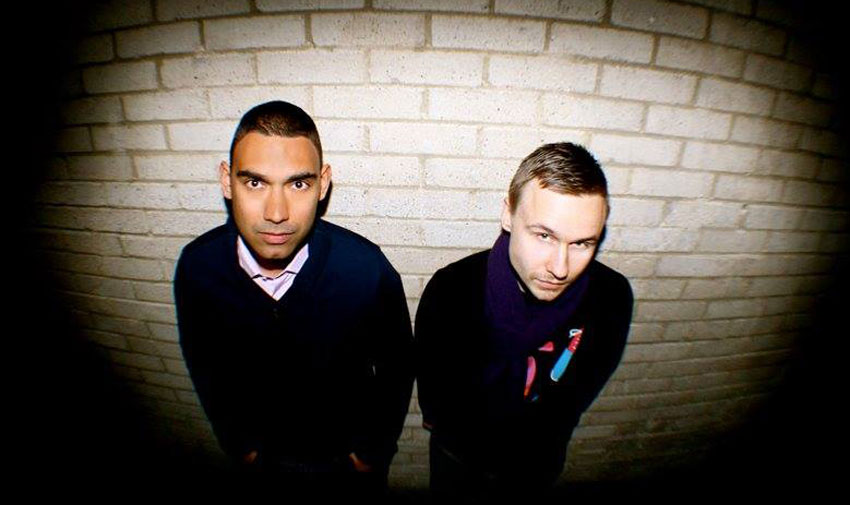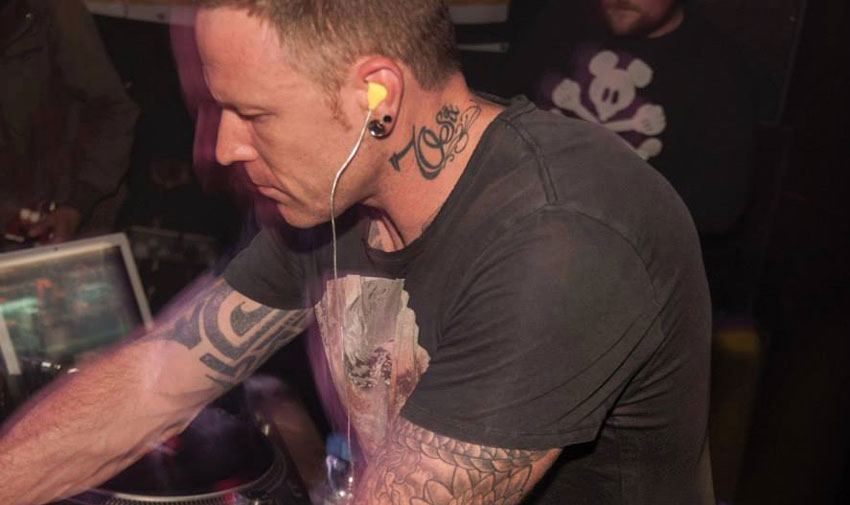
Want all the hottest music and gear news, reviews, deals, features and more, direct to your inbox? Sign up here.
You are now subscribed
Your newsletter sign-up was successful
While it's possible to generate a following on social media sites such as SoundCloud, the best way for dance music artists to get exposure is through DJ support. However, DJs get sent a huge number of tracks, so how do you make sure that yours stand out?
We asked Tomek from house heroes NAPT (OWLSA, Fool's Gold) and rising drum 'n' bass star Blade (Liquid V, Good Looking) for their tips on getting your tracks heard and played.
1. DO write personalised emails
It's easy to research a bunch of DJ's emails addresses and spam them with a bulk email, but taking the time to write a proper email will make you stand out from the crowd.
"Have a good reason to contact that particular artist - be specific in your message as to why you are contacting them, and include your contact details," advises Tomek.
2. DON'T send tracks to DJs who won't be interested
DJs receive enough music of the genre they actually play without having to trawl through unsolicited submissions in different styles, so sending DJs music they're unlikely to be interested in is a waste of both your and their time. "You never know what someone else may like, but it is wise to research them a bit before sending," Tomek suggests.
Want all the hottest music and gear news, reviews, deals, features and more, direct to your inbox? Sign up here.
"I try to take on board the vibe of each DJ first," Blade agrees, "then I see if the tune i'm sending is able to fit into their style."
3. DO label your tracks properly
It might be convenient for you to send a track hot from your rendered tracks folder with its original and meaningless filename ("Ma Hench Beatz 57.wav"), but properly labelling it with your artist name, track name, contact details, and perhaps even date of creation and whether its signed or not will make it easier for its recipient to find it in a hurry.
So for instance, "DJ Hench - Da Henchest Beatz - henchboy@henchrecords.com - unsigned.mp3" is a straightforward and information-packed naming convention.
4. DON'T send people full files
What's more frustrating than having your email inbox filled to capacity with an unsolicited 60MB .wav file when you're busy? Not much, so why inconvenience someone else in this manner? An email with a link to a high quality mp3 download and/or private stream is more convenient. It also has the advantage of not enraging its recipient or encouraging them to block your email address. "I always drop them an mp3, and then a .wav for those who are feeling it," reveals Blade.
5. DO arrange your tracks sensibly
DJs like tracks that are easy to mix, and if your track seems like it going to be a pain to fit into a set it's more likely to get passed over for something more DJ friendly. It can be beneficial to study other music in the genre you make to see how those tracks are arranged, and take your cues from there. Rhythmic intros and a regular number of bars per section are both characteristics of DJ friendly music.
Blade, hard at work

6. DON'T send out poor quality music
It can be hard to judge the quality of our own musical creations but this is an important skill to learn because sending a DJ music that's nowhere near the standard of the competition is likely to put them off from wanting to hear more of your material.
Referencing your tracks against high quality examples from the same genre is a good way to assess the quality of your mixdowns, but bear in mind that unless your tracks have been mastered by yourself or a professional they'll likely be much quieter than commercial releases.
"Sometimes I've been asked to change things by a DJ, but it's only ever small things like dropping a sample or sound," Blade notes.
7. DO ask politely for feedback
Getting helpful feedback from someone who knows what they're talking about is like gold dust for the aspiring producer. Sadly, many DJs are too busy to offer help but it doesn't hurt to ask for feedback. You may get it, and at the very least you'll look sincere in your desire to send them good music.
Try out any suggestions that you receive and judge for yourself if they improve the quality of your productions. If someone is disparaging, don't worry too much about it - if you work hard your productions will only get better! Blade suggests using a direct approach for getting a DJ's attention:
"Firstly, it's always best to try and hit them at a gig. If not, there are a few options: you can drop them a line on social networks or via their website. Alternatively, you can ask other producers and see if any of them have an email address."
8. DON'T be obnoxious
Harassing people or being rude and arrogant is not going to help your cause. If you don't receive a response, chances are the DJ has listened to it and, for whatever reason, it's not of interest to them.
Sending one polite follow up email a couple of weeks after you send your track isn't over the top, but don't keep harassing them because you're unlikely to get the kind of response you want. If someone comes back with negative feedback the best way to make yourself feel better is to maintain your dignity and improve your music.
9. DO present your tracks well
Having more than a second of silence at the start and end of a track is too much and makes it harder for the DJ to cue the track and judge when it's going to end. There's plenty of well formatted music out there so don't give anyone such a petty reason to not want to play your track.
It also helps if tracks are nice and loud - you don't necessarily need to pay for professional mastering, but look into DIY mastering tutorials to find out how to create ready-to-play versions of your tunes.